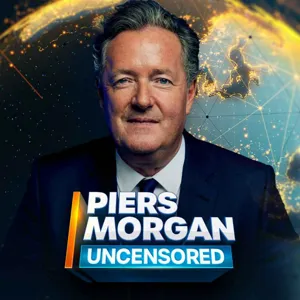Podcast Summary
Historical context of federal funding of local law enforcement: The recent calls to defund the police stem from the belief that local police budgets, which are largely spent on personnel, do not effectively keep the public safe. This belief is rooted in the historical context of federal funding of local law enforcement, which has left the balance of power and money unchecked since the 1930s.
The deaths of George Floyd, Breonna Taylor, and Ahmad Aubrey, among others, have sparked a national conversation about police authority and accountability. The issue of police brutality is not new, but the recent protests have led to a clear policy demand for defunding the police. This call to action stems from the belief that local police budgets, which are largely spent on personnel, do not effectively keep the public safe. The federal government's role in shaping local policing through funding dates back to the 1930s, and this intervention has left the balance of power and money unchecked. The historical context of federal funding of local law enforcement is an important context for understanding the current calls to defund the police.
The professionalization of police departments in the early 20th century led to racial bias and reinforced social order.: Early 20th century police professionalization perpetuated racial biases, and during the civil rights movement, conservatives used crime as a political tool to regain control, leading to aggressive policing in black communities and relaxed privacy laws.
The professionalization of police departments in the early 20th century, while intended to improve local policing, ultimately codified racial norms and reinforced social order rather than protecting all people equally. In the North, white ethnics' criminality was seen as a result of poor social conditions, while black vice was conflated with their character. During the civil rights movement, conservatives regained political agenda control by reframing the issue as one of law and order and crime, leading to the War on Crime and the passing of the Crime Control and Safe Streets Act of 1968, which funneled massive amounts of money into local law enforcement and led to aggressive policing, especially in black urban communities. This resulted in overturning Supreme Court decisions and relaxing prohibitions on wiretapping and electronic surveillance.
Expansion of no-knock warrants and war on drugs: The war on drugs and increased funding from the federal government facilitated the expansion of no-knock warrants and mass arrests, disproportionately affecting black and brown communities, and leading to the militarization of policing.
The expansion of no-knock warrants and the war on drugs in the late 1900s were facilitated by increased funding from the federal government to state and local law enforcement agencies. This expansion was not due to a single innovation but rather a cumulative effect of changes across many jurisdictions. Reagan's war on drugs and Clinton's crime bill significantly increased funding for law enforcement, leading to mass arrests and prison sentences. These bills would not have been effective without the existing capacity of law enforcement institutions. Additionally, federal programs like the 1033 program provided military equipment to local police departments, contributing to the militarization of policing. These policies disproportionately affected black and brown communities, leading to increased policing and mandatory minimum sentencing policies. Despite public support for law and order, support for these policies has waned over time.
Federal funding for local law enforcement and military equipment: From crime control focus to terrorism defense, federal funding for local police departments has fluctuated, with significant increases after 9/11 and concerns over military equipment use in the 2010s.
The relationship between federal funding for local law enforcement and the use of military equipment has evolved significantly over the past few decades. Initially, federal funding for local police departments increased during the Reagan and Clinton administrations due to a focus on crime control. However, support for these programs waned in the early 2000s due to declining crime rates and concerns over racial profiling. The September 11 attacks changed the narrative, leading to a renewed focus on local law enforcement as the first line of defense against terrorism and a significant increase in funding. The use of military equipment by local police became a concern following the Ferguson protests in 2014, leading to increased oversight under the Obama administration. However, these restrictions were rescinded under the Trump administration, and today, the federal government continues to contribute billions of dollars to local law enforcement, with some grants providing essential resources and others having non-budgetary costs.
Federal Funding for Law Enforcement: Balancing Costs and Community Harm: Federal funding for law enforcement can incentivize intrusive practices, bypass accountability, and overlook harm to individuals and communities. The government should prioritize community input, public safety, and fairness in its role shaping the future of policing.
The focus on funding for law enforcement programs may overlook the potential for these funds to incentivize intrusive and harmful policing practices. The government's emphasis on the costs and benefits of these programs often neglects the harm caused to individuals and communities through additional surveillance, military equipment, and arrests. Furthermore, these programs can bypass traditional checks on police accountability by providing local departments with outside funding, making it essential for the federal government to consider whether it's getting a good return on its investment and how it can better support community-led efforts to reimagine public safety. The recent protests against police brutality underscore the importance of this issue, as the expansion of police power in the aftermath of past movements for change is a concerning parallel. Ultimately, the federal government plays a significant role in shaping the future of policing, and it's crucial to ensure that this role prioritizes community input, public safety, and fairness.
History shows police funding often increases after instances of violence and racial injustice: Despite calls for defunding the police, history suggests that funding may continue to increase, leading to procedural improvements but not transformative change for subjugated communities.
Despite calls for defunding the police following instances of police violence and racial injustice, history shows that funding for law enforcement often increases in response. For example, during the Rodney King riots in the 1990s and more recent protests in cities like Ferguson, Baltimore, and Chicago, many cities responded by increasing police funding and manpower. Scholar Vesla Weaver argues that this pattern may continue, leading to procedural improvements but not the transformative change needed for subjugated communities. Rachel Harmon, a law professor, also emphasized the need to consider the historical context and potential consequences of defunding the police. Ultimately, the outcome of the current moment remains uncertain, and it's essential to closely watch the developments and their potential impact on policing and racial justice.






